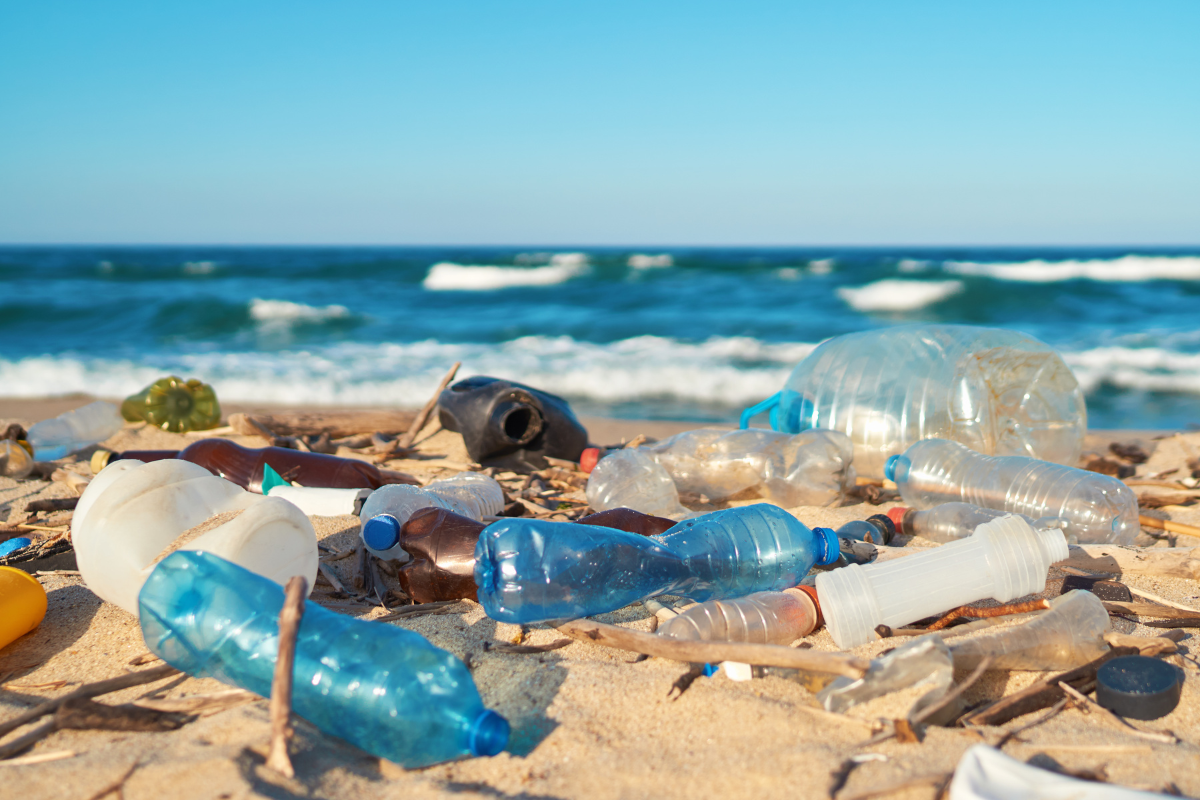
The report from the Center for Climate Integrity calls for Big Oil and the plastics industry to be held accountable “for their campaign of deception.” | Maryshot/Shutterstock
A new report, “The Fraud of Plastic Recycling,” argues there has been a “decades-long campaign of fraud and deception about the recyclability of plastics.” In response, recycling groups highlighted current plastics diversion successes and technology investments.
The report, written by the Center for Climate Integrity with contributions from Jan Dell, founder of The Last Beach Cleanup, includes history and examples of public campaigns to stave off anti-plastic legislation and reassure the public that recycling works.
“Despite their long-standing knowledge that recycling plastic is neither technically nor economically viable, petrochemical companies – independently and through their industry trade associations and front groups – have engaged in fraudulent marketing and public education campaigns designed to mislead the public about the viability of plastic recycling as a solution to plastic waste,” the report states.
It calls for Big Oil and the plastics industry to be held accountable “for their campaign of deception much like the producers of tobacco, opioids and toxic chemicals that engaged in similar schemes,” adding that the report is intended to lay the foundation for such a claim.
Industry responds
The Association of Plastic Recyclers (APR) and the U.S. Plastics Pact said in a joint statement that “APR and the U.S. Plastics Pact know that recycling works.” (APR owns Resource Recycling, Inc. which publishes Plastics Recycling Update).
“Recyclers take in post-consumer plastic packaging from every community recycling program across the country and process it so that it can be sold to manufacturers and made into new plastic packaging and products,” the statement noted. “Annually, over 5 billion pounds of post-consumer plastics are successfully recycled in North America. That’s 5 billion pounds of plastics that do not end up in waterways or landfills.”
The two groups called recycling “a vital engine for driving a circular economy through U.S. manufacturing.”
“APR and the U.S. Plastics Pact are working every day across the value chain to boost recycling rates and to counteract the impact of low-cost virgin plastic by ensuring that more items are made from recycled content,” the statement noted. “The truth is as long as Americans depend on plastic in certain products, we need a robust recycling supply chain to minimize waste and strengthen sustainability.”
Ross Eisenberg, president of the American Chemistry Council, said in a statement the report “works against our goals to be more sustainable by mischaracterizing the industry and the state of today’s recycling technologies.”
Plastics Industry Association President and CEO Matt Seaholm said in a press release that the report “was created by an activist, anti-recycling organization and disregards the incredible investments in recycling technologies made by our industry,” going on to accuse the report of misleading the public about recycling.
Report details
The report begins in the 1950s, when disposable and single-use plastics started to rise in popularity. It then moves into the ’60s and ’70s, when “the plastics industry promoted incineration and landfilling as ‘solutions’ to plastic waste.”
“The industry’s success in ‘selling’ disposability and introducing single-use plastics had predictable consequences,” the report noted. “By the end of the decade and into the early 1970s, plastics were identified as a key part of the developing solid waste crisis.”
That led to the plastics industry promoting recycling in response to public backlash in the mid-1980s, the report continued, and a period of increased legislative pressure and scrutiny in the mid-’80s to the mid-’90s.
“What led the industry to change its position in the 1980s was not a massive technological breakthrough or an answer to the economic roadblocks to plastic recycling,” the report noted. “Rather, the plastics industry began to lie about the viability of recycling as a direct result of the backlash they faced from the public.”
Around the same time came a “coordinated campaign to sell the promise of plastic recycling,” the report added, along with “performative investments as part of its campaign to promote plastic recycling.”
“When public backlash prompted threats of legislative and regulatory action, the plastics industry recognized that the appearance of action was its best defense,” the report stated. “The industry announced direct investments in recycling initiatives, taking the form of research efforts, pilot programs and company-owned recycling facilities. Whatever form they took, they shared a common purpose: to prevent bans on single-use plastics.”
The plastics industry then “backed off its commitments when its campaign proved successful and public pressure subsided” from the mid-1990s to the mid-2010s, the report found, until public pressure started to ramp up again in 2015. That pressure has continued to the present day, the report noted, and the industry has responded with the same tactics as before.
The report specifically called out a number of industry groups that the chemical industry has created and funded as “front groups to promote plastic recycling as a false solution.”
Those organizations included the The Recycling Partnership, the Alliance to End Plastic Waste, the Sustainable Packaging Coalition, the Consortium for Waste Circularity, the Circular Plastics Fund, the Ellen MacArthur Foundation, the Campaign for Recycling and the Environment, the World Plastics Council, the Coalition to Advance Molecular Recycling, the Plastic Bottle Institute, the Association of Plastic Recyclers (APR), the Vinyl Institute, the Plastics Recycling Foundation, the National Association for PET Container Resources (NAPCOR), the American Plastics Council, and the Flexible Packaging Association (FPA).
Those groups “allow the industry to create an illusion of success with the intent to deceive consumers, just like industry front groups of the past,” the report stated, with the added factor of chemical recycling, which the report says is “not recycling.”
A version of this story appeared in Plastics Recycling Update on Feb. 21.

